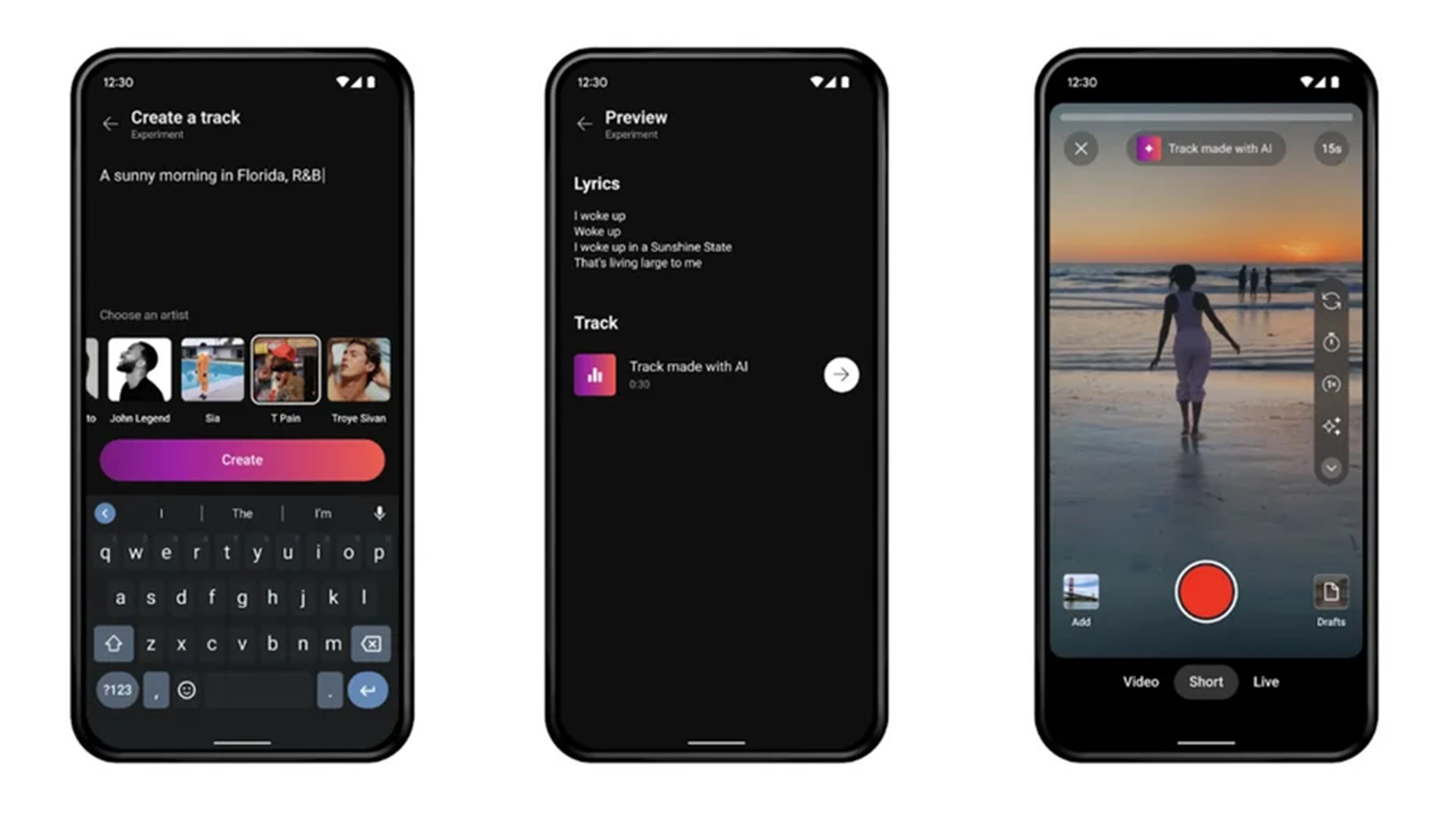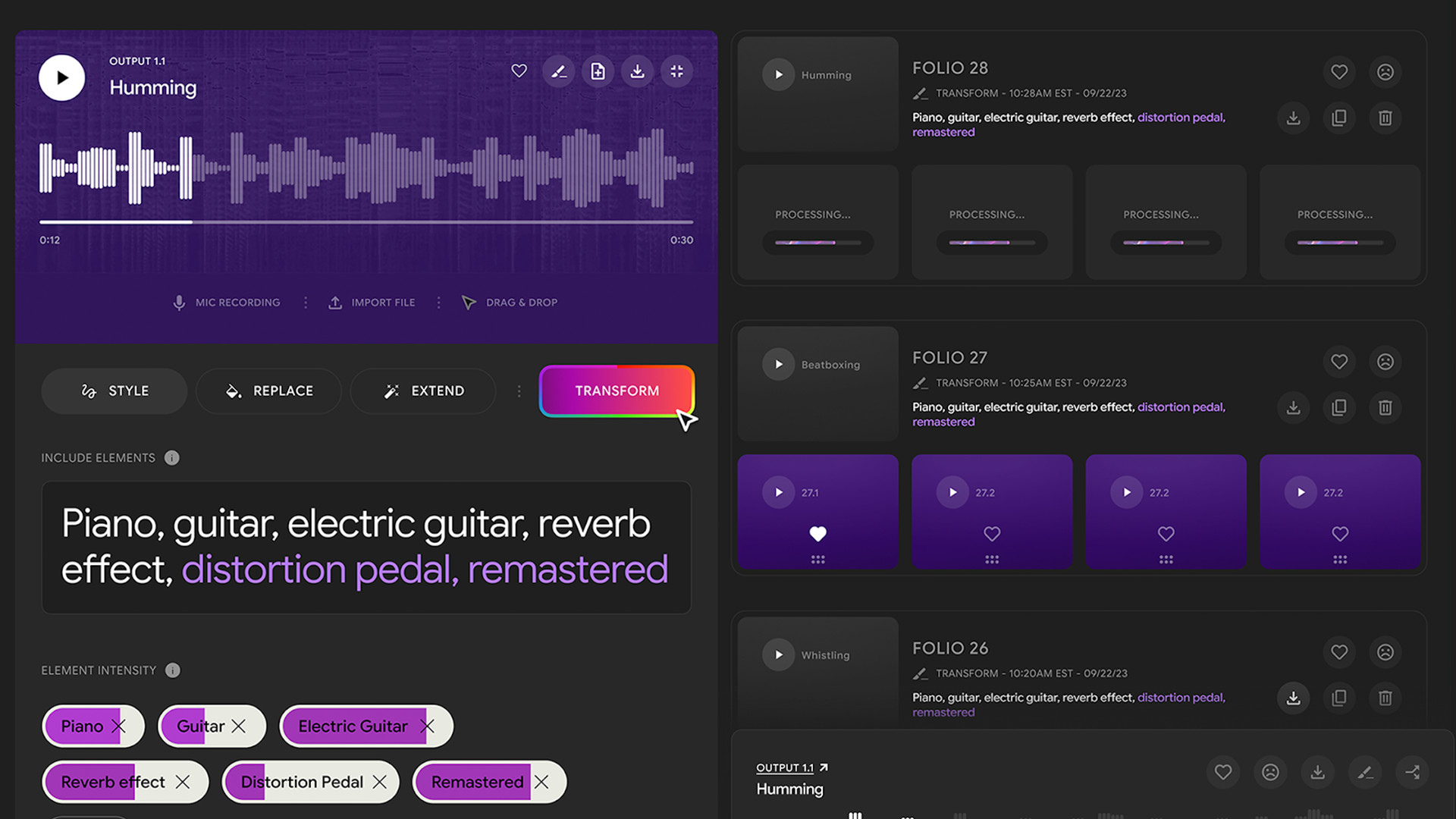
YouTube is testing a pair of experimental AI tools giving users a way to create short songs either via a text prompt or their own vocal sample.
The first one is called Dream Track, a feature harnessing the voices of a group of nine mainstream artists to generate 30-second music tracks for YouTube Shorts. The way it works is you enter a text prompt into the engine describing what you want to hear and then select a singer appearing in the tool’s carousel. Participating musicians include John Legend, Sia, and T-Pain; all of whom gave their consent to be a part of the program. Back in late October, a Bloomberg report made the rounds stating YouTube was working on AI tech allowing content creators “to produce songs using the voices of famous singers”, but couldn’t launch it due to the ongoing negotiations with record labels. Dream Track appears to be that self-same AI.

For the initial rollout, Dream Track will be available to a small group of American content creators on mobile devices. No word on if and when it’ll see a wider release or desktop version.
The announcement post has a couple of videos demonstrating the feature. One of them simulates a user asking the AI to create a song about “a sunny morning in Florida” using T-Pain’s voice. In our opinion, it does a pretty good job of emulating his style and coming up with lyrics on the fly, although the performance does sound like it’s been through an Auto-Tune filter.
Voices into music
The second experiment is called Music AI Tools which, as we alluded to earlier, can generate bite-sized tracks by transforming an uploaded vocal sample. For example, a short clip of you humming can turn into a guitar riff. It even works in reverse as chords coming from a MIDI keyboard can be morphed into a choir.
An image on Google’s DeepMind website reveals what the user interface for the Music AI Tool desktop app may look like. At first, we figured the layout would be relatively simple like Dream Track, however, it is a lot more involved.

The interface resembles a music editing program with a timeline at the top highlighting the input alongside several editing tools. These presumably would allow users a way to tweak certain elements in a generated track. Perhaps a producer wants to tone down the distortion on a guitar riff or bump up the piano section.
Google says it is currently testing this feature with those in YouTube’s Music AI Incubator program, which is an exclusive group consisting of “artists, songwriters, and producers” from across the music industry. No word on when it’ll see a wide release.
Analysis: Treading new waters
YouTube is pitching this recent foray as a new way for creative users to express themselves; a new way to empower fledgling musicians who may lack important resources to grow. However, if you look at this from the artists’ perspective, the attitude is not so positive. The platform compiled a series of quotes from the group of nine singers regarding Dream Track. Several mention the inevitability of generative AI in music and the need to be a part of it, with a few stating they will remain cautious towards the tech.
We may be reading too much into this, but we get the vibe that some aren’t totally on board with this tech. To quote one of our earlier reports, musicians see generative AI as something “they’ll have to deal with or they risk getting left behind.”
YouTube says it’s approaching the situation with the utmost respect, ensuring “the broader music community” benefits. Hopefully, the platform will maintain its integrity moving forward.
While we have you, be sure to check out TechRadar's list of the best free music-making software for 2023.
You might also like
- YouTube reveals grand plan to become a more trustworthy news destination
- YouTube Premium just got a lot better on Android and TVs in a great new upgrade
- YouTube Music is finally getting one of Spotify's best features but with one catch
Follow TechRadar on TikTok for news, reviews, unboxings, and hot Black Friday deals!







